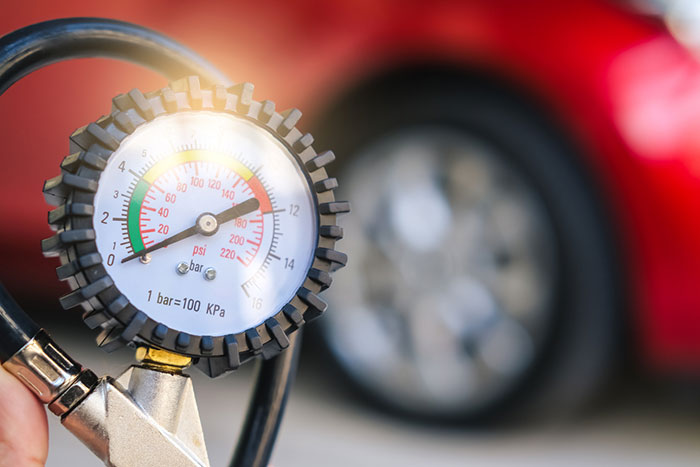
As the sun’s rays beat down relentlessly during the scorching summer months, it’s not just us that feel the heat – our vehicles do too. While you may be aware of the importance of checking the pressure in your car tyres regularly, you might not realise just how much hot temperatures can affect your pressure readings. If you want to learn more about tyre pressure and the ways in which soaring temperatures can impact your vehicle’s performance and safety, then read on.
Understanding Tyre Pressure
Before getting into the complexities of temperature fluctuations, it’s important to start with the basics. What exactly is tyre pressure? Well, it refers to the amount of air inside a tyre, and it’s measured in pounds per square inch (PSI). Ensuring the correct pressure is necessary for a multitude of reasons but specifically for optimal vehicle handling, fuel efficiency, and overall safety. The inflation pressure needed varies based on your specific tyre or vehicle. So, how do I know the right tyre pressure for my vehicle? You should be able to find this info in your car’s manual, on the driver’s side door frame, or inside the fuel door.
The Heat Factor
Here’s where things get a little interesting. As outside temperatures rise, like on those roasting summer days, so too does the pressure inside your tyres. This phenomenon can be attributed to the ideal gas law – this states that the pressure of a gas is directly proportional to its temperature when volume and the number of particles are constant. What does that mean? In simpler terms, as the air inside your tyres heats up, its molecules gain energy and move more rapidly, exerting greater pressure on the walls of the tyre. Greater pressure on the walls of your tyres = greater PSI.
So, How Much Of An Impact Can Hot Temperatures Really Have On Tyre Pressure?
Well, it’s more significant than you might think. On average, for every 10°C increase in temperature, tyre pressure can increase by approximately 1-2 PSI. That means that during a blistering summer day with temperatures soaring 20°C above normal, into the 40s, your tyre pressure could potentially rise by as much as 4 PSI or more! But don’t rush out and deflate your tyres to account for this – most tyres are designed with built-in air pressure tolerances so you should be able to continue driving even in the hottest conditions without altering your tyre pressure. Just make sure you keep an eye on it and look out for any signs of overheating.
The Consequences of Neglect
While a slight increase in tyre pressure might not seem like cause for concern, it can have significant consequences if left unchecked. Overinflated tyres are more prone to blowouts, especially when subjected to high speeds or heavy loads. Additionally, excessive tyre pressure can lead to premature wear and tear, reduced traction, and compromised handling, posing a safety risk for you and your passengers. If you check your air pressure regularly and notice it is higher than it should be, then you should adjust it in accordance with the manufacturer’s recommendations.
The Solution? Regular Monitoring!
The good news is that preventing the adverse effects of hot temperatures on tyre pressure is relatively simple, all it takes is regular monitoring and maintenance. Make it a habit to manually check your pressure at least once a month, using a reliable pressure gauge when the tyres are cold (before driving or when they haven’t been exposed to direct sunlight for several hours).
For many of us, it’s easy to forget about manually checking our tyre pressure, it’s not always high up on the priority list. A tyre pressure monitoring system is the answer! This device ensures your tyres are always properly inflated. Consistently monitoring the pressure in your tyres via in-built sensors, it alerts you to any significant pressure changes so you can tend to them promptly. Many modern cars some with TPMS fitted as standard, but many older makes and models do not. Fortunately, it’s simple and affordable to install a reliable TPMS in almost any vehicle.
Get a tyre pressure monitoring system (TPMS) from Safe T Tyre today! While hot temperatures can certainly put your tyres to the test, being proactive is your best defence against potential issues. Installing a TPMS will ensure you can drive with confidence knowing you’ll be alerted to any air pressure changes. Get yours today.

